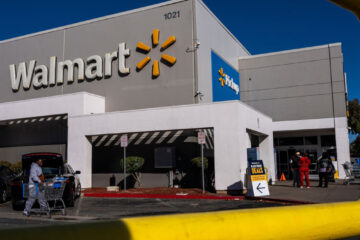You can love the company, the management, the products and the prospects, and still decide to sell under some circumstances.
Faced with patent expirations on a key drug, a big pharmaceutical company has responded creatively, Real Money Columnist Stephen “Sarge” Guilfoyle, noted recently.
“AbbVie (ABBV) – Get AbbVie, Inc. Report, long a Sarge fave, and now one of the oldest continuous long positions on my book, keeps on going… higher,” Guilfoyle wrote. “We at first entered the name for the dividend. We were then enthralled with how management, realizing that they were up against a patent expiration cliff with best selling drug Humira, had engineered the acquisition of Allergan to replace potential lost revenue, and potentially lost cash flow. Think Botox, think eye care, think neuroscience.”
Still there are issues.
“AbbVie has acknowledged that sales growth will slow in 2024, and then average single digit growth beyond that,” he wrote. “The dividend in this name is key to making any investment decision regarding the stock. ABBV pays shareholders $5.64 annually just to stick around. That’s a yield of 3.62%.”
For Guilfoyle a deciding factor was a seasonal trading pattern he observed.
An analysis shows that the pharmaceutical company’s mean performance for March over the past five year is -1.88% and the month is on average its second worst month of the year. Only October beats the month in weak performance.
A deeper dive demonstrates that the worst week of the year for AbbVie is the twelfth. During the twelfth week the stock’s average performance is -5.53% and also is ABBV’s worst week of the year, Guilfoyle wrote.
“I am already up significantly on a fairly large position that does not yield what it used to,” he wrote. “I will be selling my shares of ABBV over the balance of the week starting today,” he wrote (in mid March).
It would appear that this year was the exception that proved the dip rule. AbbVie shares finished March up about 4% from where they were when Guilfoyle wrote the piece. But given that he was already sitting on big gains and was sanguine about the posibility of being wrong, that’s not a serious problem.
“Does past performance guarantee anything? Not a thing. If I am wrong, I can always buy them back. Probably buy them back right or wrong. If I am right, I’ll extract some capital from one of my names because I paid attention.”


